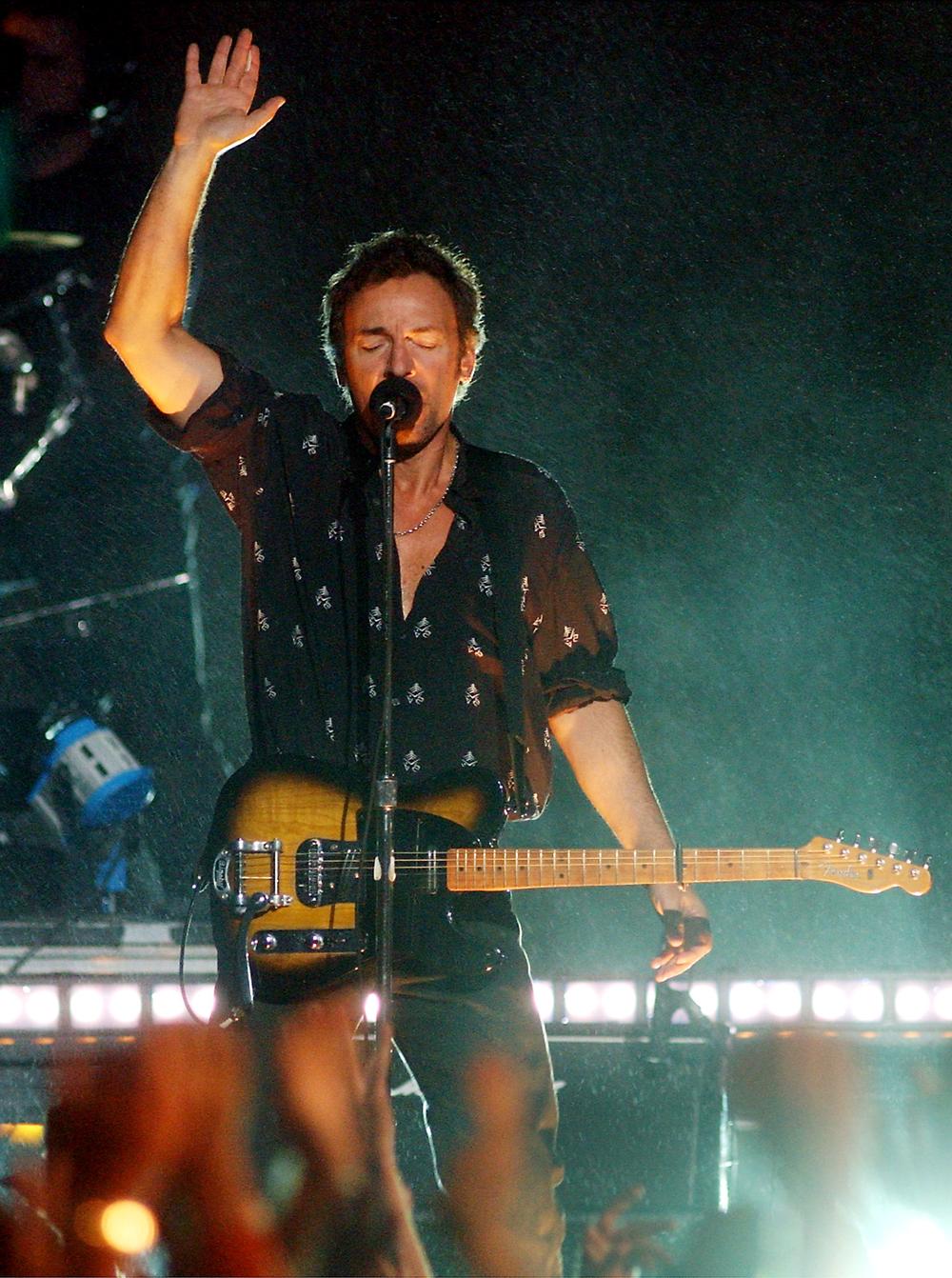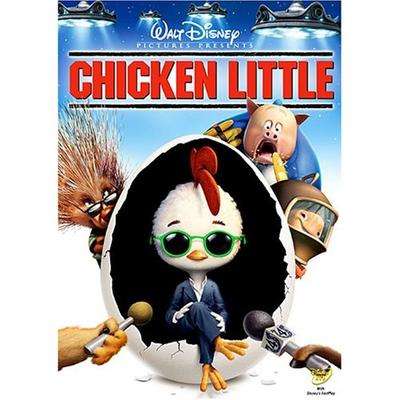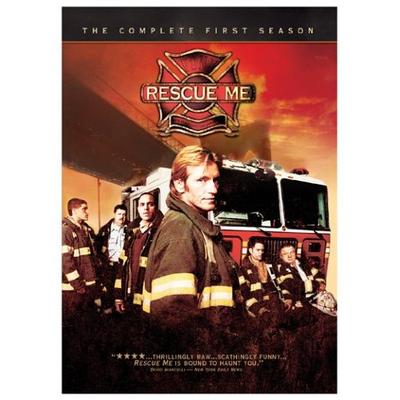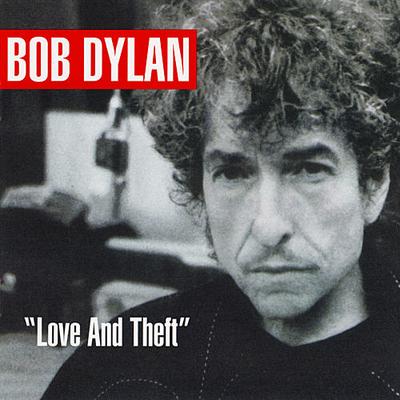Advertisement
The Culture That Rose After The Sky Fell
BOSTON — Bruce Springsteen has said the carnage of Sept. 11 inspired him to make music. After reading the New York Times "Portraits of Grief," the musician discovered many of the victims had been his fans. That led to his 2002 album, "The Rising."

In his book "9/11 Culture," Babson College professor Jeffrey Melnick attempts to index the body of art and culture that emerged in the years after Sept. 11, 2001.
Melnick even argues the animated film "Chicken Little" is the fullest expression of the post-9/11 "father fantasy" — a reassurance that fathers will be there for their sons even when the sky is falling. Even when they couldn't be there on Sept. 11.
And sure, "United 93" is a 9/11 movie, but so are "Snakes on a Plane" and "Flight Plan" — movies about airplane anxiety — he argues.
Melnick spoke with Here & Now host Robin Young on this eighth anniversary of the attacks.
ROBIN YOUNG: I have to ask, really, "Chicken Little," we love the animated film, but are you reading too deep to tie it to 9/11?
JEFFREY MELNICK: I don't think so. The thing about "Chicken Little" that I found so appealing was that it put its work right out front. The basic story, and this is a spoiler alert here, so if you haven't seen it yet, I'm sorry, any of you out there. The basic story is that the sky is falling, unlike the original fable where it's just the hysterical chicken who's worried about the sky falling. Here the sky is falling, but the damage isn't permanent. It's just a test for the main character, and the test is whether he can rise to the challenge of being masculine enough.
And whether his father will not just dismiss him as a hysterical chicken, or actually believe him and come to help him.
 Exactly.
Exactly.And he does. And that's so reassuring because one of the things you say in your book is that post-9/11 father figures like firemen and policemen couldn't, and this sense of the helplessness of men in the wake of 9/11 is far more obvious in something like "Rescue Me" with Dennis Leary.
Absolutely. That's a fascinating show that keeps wavering between this kind of hyper-macho firefighter who talks trash constantly in the locker room about which women he's conquered, and on the other hand showing us characters who are just completely undone by the trauma of 9/11 who just can't figure out how to move forward, can't figure out to be good fathers, can't figure out how to be good husbands, and so on.

Well, and you see resonances of 9/11 in the ABC television series "Lost." This is the story of the plane crash survivors flashing back and forward in time. Where do you see it there?
Well, really in the basic premise which is how do you live in the culture after the plane crash. I mean, that really is my whole concern with that show, is, Who's gonna be in charge? Who do we listen to after the plane crashes? And the show wavers constantly between — Do we listen to the older philosophical man? Do we listen to the more action-oriented young couple who are featured so much in the first season, in particular? The minute you put a plane crash — the minute you put a plane on the screen. And that's why in the book, one of the things I say is, obviously, the movie "United 93" is a 9/11 movie but so is "Snakes on a Plane," so is "Red Eye," so is "Flight Plan."
"Snakes on a Plane" a 9/11 movie?
Well, I think any time in the few years after 9/11 that you put a major scene of anxiety, and snakes on a plane certainly fits the bill. We're talking about a culture. It's not the first time that we've been interested in airplane crisis movie. I can remember a time in the 1970s and that was really a result of the hijacking fears at the time that were much different. But certainly in the couple years after 9/11, there was this rush to make airplane anxiety movies.
Right, well and I'm thinking, just thinking back to "Lost" for a second, this odd story of people on the island. I'm wondering if there's also some wishful thinking there, you know. Maybe the 9/11 victims are on some island somewhere in some parallel reality.
Right, and that's absolutely true. There's a kind of fantasy there too which is that no body got hurt on the crash. It's kind of compensatory. The plane crashed, a couple of people died, but we don't care about them because they don't turn out to be characters on the show. So we get to see the terrible crash, and then we get to see these people starting all over again. So whether they're really on an island or not isn't as important, I think you're absolutely right, as the fantasy that life goes on in a brand new exciting complex way.
You quote others who say that when we look at 9/11 culture it's something that is indelibly time stamped 9/12. In other words, as you say, we don't look at airplanes the same way anymore. We just can't. It's indelible. We know we have a different feeling the day after 9/11. So Bob Dylan's CD "Love and Theft" which came out on 9/11 and many people think they hear things about 9/11 in it can't be because it was written before 9/11?
 Right, absolutely, but we don't hear it as written before 9/11. because we didn't hear it till that day or later that day or the next day or that week. So everything we hear about that record, or Jay-Z's original "Blueprint" record, which also came out on Sept. 11, we now hear and see the whole cultural phenomenon through these Sept. 12 glasses. And there are a number of critics who've rushed in to say, you know, Dylan, he's a prophet, what did he know? And he didn't know anything, not any more than he ever knew, which is maybe everything — but that's Dylan. And so we put this new framework on it, which is, how do we read this?
Right, absolutely, but we don't hear it as written before 9/11. because we didn't hear it till that day or later that day or the next day or that week. So everything we hear about that record, or Jay-Z's original "Blueprint" record, which also came out on Sept. 11, we now hear and see the whole cultural phenomenon through these Sept. 12 glasses. And there are a number of critics who've rushed in to say, you know, Dylan, he's a prophet, what did he know? And he didn't know anything, not any more than he ever knew, which is maybe everything — but that's Dylan. And so we put this new framework on it, which is, how do we read this?Well, then, of course, there were the rumors. We're gonna put aside the conspiracy rumors, but I want to ask you about the corporate-sponsored rumors clearly culturally. And the biggest had to be Clear Channel Communications. Now this is the country's biggest radio station group owner, and the rumor was that they had a list of banned songs. They denied that they had the list of banned songs, but they did.
Apparently the list was created by a middle manager at a local radio station somewhere, and it circulate widely. And so Clear Channel quickly got in the business of denying the rumor because it allowed them to have a position as a good guy pretty quickly. It allowed them to say, "We're not banning anything." In one of their press releases, they said we believe that radio is a local medium, which is a funny thing for a huge corporate giant to say, and we're gonna let our stations to do what they want. By that time, the list was everywhere.
But it worked for them because rumor squashing Web sites believed them, so they, Clear Channel, got to have the rumor and also got to enact the list. And on the list is this strangest assortment. Yes, there was Shelly Fabares' "Johnny Angel," but there was also John Lennon's "Imagine" and any song by the group Rage Against the Machine.
It's a real having your cake and eating it too situation.
Well, and one can understand maybe protecting listeners, maybe survivors families from songs that might remind them of 9/11. There's that, but they got to also ban songs on political basis.
Well, they tried to. But of course a few days after the list circulated, there was Neil Young on the big telethon singing his version of John Lennon's "Imagine."
You also point out that 9/11 didn't produce the same experience for all Americans particularly some African-Americans and Native Americans. The rap artist KRS-1 said, more pointedly, 9/11 didn't happen to African-Americans. It happened to them down the block, the rich and powerful.
Now others came forward, like Mohammad Ali on the telethon to say, no, we're all in this together. But then there also the African-American artists who reached out to groups they saw as replacing them as the new suspect group.
There was that famous Boondocks cartoon strip that announced that hey, blacks aren't the most hated group in America anymore.
Jeffrey Melnick, did you see this African-American actually reaching out to peoples that now were trusted less by some Americans?
Yeah, there's this fascinating wave, that stretches say roughly from 2003 to 2005, of rap artists jumping into this and I took this as a sign that African-Americans weren't going to accept this rhetoric of being the good minority group now. These artists like Jay-Z, like Erick Sermon, like the producer Timbaland, again and again reach out to the sounds of South Asia and of the Middle East to say, you know what, we're connected to these people.
Well, one of those disturbing images from 9/11 was largely held back from Americans but eventually made its way into the culture, and I'm talking of course about the falling man, the horrible images of people falling or jumping from the trade towers. It's the culture deciding we're not going to see that.
Absolutely.
Except now the opening credits of "Mad Men," the widely popular show about 1950s advertising men, shows a sort of a cartoon of a business man tumbling from a building, and no one bats an eyelash.
It's amazing how far we've come in five years or so. I'm glad you mentioned the "Mad Men" image because folks have been talking about that opening sequence, how wonderful the graphics are and how it captures something about a couple of Hitchcock movies, and no one as far as I can tell is talking about how it says something about people jumping from buildings. For a couple of years after 9/11 you couldn't show an image of somebody jumping from a building that was, I don't want to say censored, but it was more or less taboo.
Oh, who would want to? It was a horror. One of the most heartbreaking treatments of that image ,we feel, is author Jonathan Safran Foer's character Oscar in Jonathan's 2005 book "Extremely Loud and Incredibly Close." Oscar is a 9-year-old whose father died in the towers. He wants to know how and he's searching all over New York City to find out how his father might have died. And in this reading from Jonathan Safran Foer, Oscar has just met a person who tells him about a woman, a waitress, who died in the tower as well:
(reading)
That's so weird to think about," I said.
What is?
Well that she worked there. Maybe she knew my dad. Or not knew him, but maybe she served him that morning. He was in the restaurant. He had a meeting. Maybe she refilled his coffee or something.
It's possible.
Maybe they died together. Maybe they'd gone up to the roof together. You saw in some of the pictures that people jumped together and held hands. So maybe they did that. Or maybe they just talked to each other until the building fell. What would they have talked about? They were obviously so different. Maybe he told her about me. I wonder what he told her? I couldn't tell how it made me feel to think about him holding somebody's hand.)
Just heartbreaking. In the end of the book Oscar Shell creates his own image of the falling man. What's that?
It's amazing. There's a flip book at the very end, which is, you know, one of the most sort of rudimentary forms of children's culture. You take a bunch of pictures together and you show them real fast, like an animation. And what Oscar creates is an image of the falling man in reverse. He creates an image of the falling man ascending. A child's eye view of a way out of the terrible conundrum of imagining jumpers after 9/11. To imagine that there's a moment of flight, to imagine that there's a moment of transcendence at the very end.
That's Jeffrey Melnick, associate professor of American Studies at Babson College. His new book is called, simply, "9/11 culture." Jeffrey, thanks so much.
Thank you, Robin.
This program aired on September 10, 2009. The audio for this program is not available.